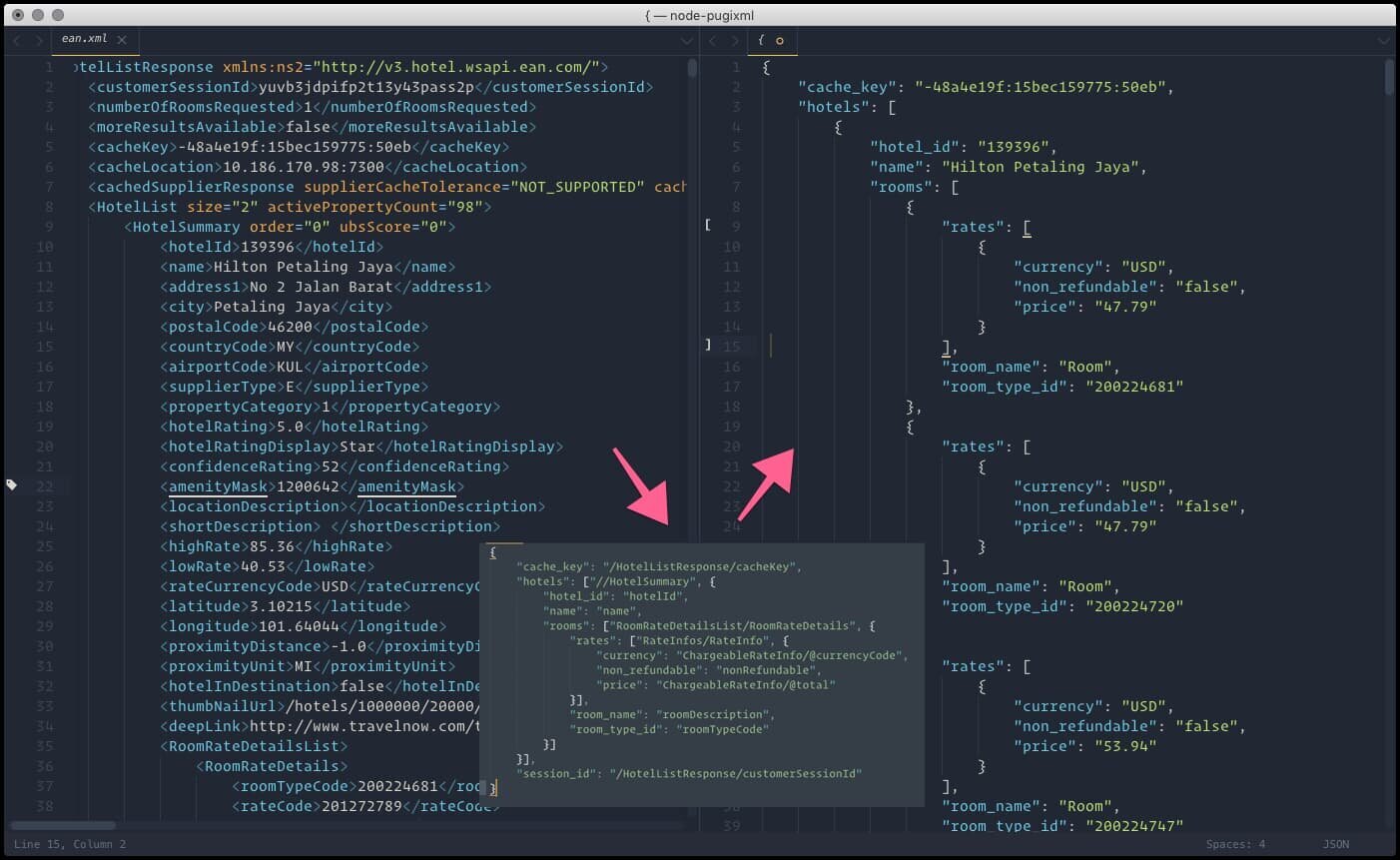Fastest way to transform XML to JSON in Node.js
Posted on August 30, 2018 • 2 minutes • 299 words
camaro is an utility to transform XML to JSON using a template engine powered by XPath syntax which looks like this

Here are some benchmarks I ran with the sample data I usually have to deal with (XML data ranges from 1-10MB)
camaro x 809 ops/sec ±1.51% (86 runs sampled)
rapidx2j x 204 ops/sec ±1.22% (81 runs sampled)
xml2json x 53.73 ops/sec ±0.58% (68 runs sampled)
xml2js x 40.57 ops/sec ±7.59% (56 runs sampled)
fast-xml-parser x 148 ops/sec ±3.43% (74 runs sampled)
xml-js x 33.38 ops/sec ±6.69% (60 runs sampled)
libxmljs x 127 ops/sec ±15.36% (50 runs sampled)
And the benefits of camaro is that not only it’s fast, it does the transformation for you as well. So you can just write a template and camaro will spit out the ready to use object using the schema you specified in the template.
At the time when I wrote this, there were already many XML parsers but there ain’t many which provide a way to support transformation.
camaro was born from that constant need of transforming big XML files into JSON in Node.js.
I was reading a blog post from Chad Austin about the fastest JSON parser. I was working exclusively with XML at the time so I asked him what about the fastest XML parser. He replied me that problem is already solved with pugixml by Arseny Kapoulkine.
pugixml looks very good from the benchmark. The only thing I can complain about it is the lack of streaming support, which I don’t really need at the time so it’s no big deal for me.
It’s fast. It supports XPath. It’s very well-maintained.
So a few dozens line of code for the transformation to glue pugixml with node and a couple of hours later, camaro was released. Just like that.